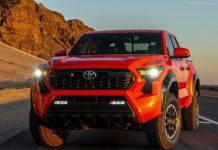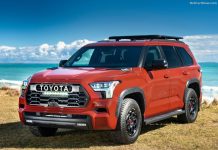The Nigerian auto market in 2020 falls by 36.1% as the pandemic, lockdowns, and fall in oil prices affect sales. Full-Year sales have been 7.451, while the leader Toyota halves its sales (-49.9%) and loses 5.1% market share.
Economic Environment
The economy likely remained under marked stress in Q3, following the steep GDP contraction in Q2 due to the pandemic-induced lockdowns and collapse in oil prices. According to secondary sources, crude oil output was down by over a fifth in Q3 from last year as the country increasingly stuck to OPEC+ cut commitments.
Together with oil prices stagnating at weak levels in the quarter, the all-important energy sector likely continued to reel. Moreover, accelerating double-digit inflation and tight FX liquidity should have weighed on household purchasing power and general business operations.
Meanwhile, leading data points to some improvement in conditions at the outset of Q4: The private sector PMI edged up on robust output and new order growth, while firms turned markedly less pessimistic in October. That said, the outbreak of widespread violent protests that same month could have weighed on activity to some extent.
Market Trend
The Nigerian car market has been hit in 2020 by the world-wide COVID-19 pandemic and the fall in oil prices.
Until 2014 the market grew steady, eventually hitting the 57.000 units record for new vehicles. At the end of that year, the Nigerian Automotive Industry Development Plan was created matching the Brazilian’s one in which the government rather than “invite” to produce locally, “forced” car-makers to appoint local facilities wishing to be part of the “party”.
In the first two following years, the government released almost 30 licenses, while the domestic market collapsed falling down to 11.743 units in 2017, due to the deep economic crisis generated by the fall in oil price and the poor domestic demand.
In 2018 the market started to recover, considering the level was near 20% of the 2014 level. Sales grew up at 19.545 and the first group of car manufacturers started to open small local plants to supply the domestic market. In 2019 the light vehicles market was back in difficulties, following the fast recovery shown in the previous year and sales declined 40.3% at 11.663 units, the second-worst level in the last decade.
The Nigerian new light vehicles market seems unable to recover after the series of negative facts which impacted severely the market in the last years. In 2020, the modest growth of the economy was killed by the combined effects of strict social distancing measures and widespread travel restrictions due to covid19 and the fall of oil prices in the international market.
Indeed, Full-Year sales for 2020 have been 7.451, reporting a decline of 36.1% compared to 2019.
Brand-wise, this year the leader Toyota (-49.9%) lost 5.1% market share, followed by Ford (-32.1%), which gained 0.8% share. Hyundai (-40%) remained third and lost 0.6% market share.
The most sold model in the country remains the Ford Ranger with 946 sales (-30.3%), holding 12.7% share.











